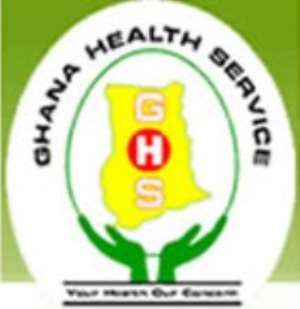
The Ghana Medical Association (GMA) has called of its impending strike action which was set to commence today, August 6, 2018.
The GMA, at its meeting in Jirapa in the Upper West Region a week ago, threatened to withdraw its out-patient services if the government failed to address the discrepancies in their conditions of service.
But, in a circular to its members, the President of the Association, Dr. Frank Ankobea, said they were backing down because the government had agreed to address their issues.
In effect, the anticipated breakdown in the health delivery system and possible loss of lives, have been averted, thanks to a responsible ministry.
The Chronicle is delighted that the Ministry of Health (MoH) found wisdom and merit in the arguments of the GMA and quickly moved in to ameliorate the 'mess' in the conditions of service of our medical doctors.
We are not in the least suggesting that public and civil servants must always threaten strike actions before their concerns are addressed, but it stands to reason that the quick response from the MoH to an impending danger to our already suffering health system makes sense and further portrays a responsible ministry, at least, for the moment.
We, at The Chronicle, would like to see our Ministries, Departments and Agencies being proactive in identifying potential causes for industrial strikes, and fashion out measures to mitigate them before they migrate into national crises.
We are fully aware that the right to strike is recognised as a fundamental human right by the United Nations, and it has been argued that collective bargaining amounts to nothing more than “collective begging” for employees without the option to strike.
This is because employees have no choice, but to accept the final terms imposed by their employer.
It has even been claimed that an individual's right to withdraw his or her labour is a feature that distinguishes employment from slavery.
Industrial action by doctors is, however, complicated by their professional values and ethical framework.
Most strikes are effective because they harm a neutral third party, who is then motivated to pressure the employer to accede to the strike demands.
Unfortunately, when doctors strike, the third party is often their patients, the very people whose health status determines how well they could contribute to the overall development of the economy.
It is against this background that The Chronicle finds it most heartwarming that the Ministry of Health did not adopt the 'by force' approach in resolving the grievances of the medical doctors.
After all, it is their right to lay down their tools, while it is the responsibility of the state to make them work under conducive circumstances.
For many people, behaviours such as strikes are inconsistent with the overriding duty of doctors to advocate for their patients, while others have claimed that doctors' strikes inevitably expose patients to the risk of serious harm.
The situation may be further complicated by doctors striking to oppose policies that are perceived to threaten the standard of care they are able to deliver.
From the foregoing, The Chronicle would like to emphasise that strikes by doctors highlight the conflict between doctors' rights as employees, and their duty to patients and the nation as a whole.
This is, however, a global phenomenon, with strikes on a regular basis across the globe.
And this is where the Ministry of Health and other ministries must constantly be alert to possible causes of industrial agitations, and manage them to ensure a stable atmosphere for national development.




 This IMANI job no dey pap; the people you are fighting for are always fighting y...
This IMANI job no dey pap; the people you are fighting for are always fighting y...
 Prof. Naana Opoku-Agyemang has changed; you can see a certain sense of urgency –...
Prof. Naana Opoku-Agyemang has changed; you can see a certain sense of urgency –...
 MFWA Executive Director slams Akoma FM for engaging in ‘irresponsible’ media pra...
MFWA Executive Director slams Akoma FM for engaging in ‘irresponsible’ media pra...
 ‘Women must become millionaires too’ — Prof Jane Naana on establishment of Women...
‘Women must become millionaires too’ — Prof Jane Naana on establishment of Women...
 Some believe only in Ghanaian votes, not Ghana — Kofi Asare jabs politicians
Some believe only in Ghanaian votes, not Ghana — Kofi Asare jabs politicians
 Plan to make BEST sole aggregator of Sentuo Oil Refinery will create market chal...
Plan to make BEST sole aggregator of Sentuo Oil Refinery will create market chal...
 2024 elections: I can't have the man I removed from office as my successor — Aku...
2024 elections: I can't have the man I removed from office as my successor — Aku...
 2024 Elections: Immediate-past NPP Germany Branch Chairman garners massive votes...
2024 Elections: Immediate-past NPP Germany Branch Chairman garners massive votes...
 Gov’t focused on making Ghana energy self-sufficient, eco-friendly – Akufo-Addo
Gov’t focused on making Ghana energy self-sufficient, eco-friendly – Akufo-Addo
 April 25: Cedi sells at GHS13.74 to $1, GHS13.14 on BoG interbank
April 25: Cedi sells at GHS13.74 to $1, GHS13.14 on BoG interbank
